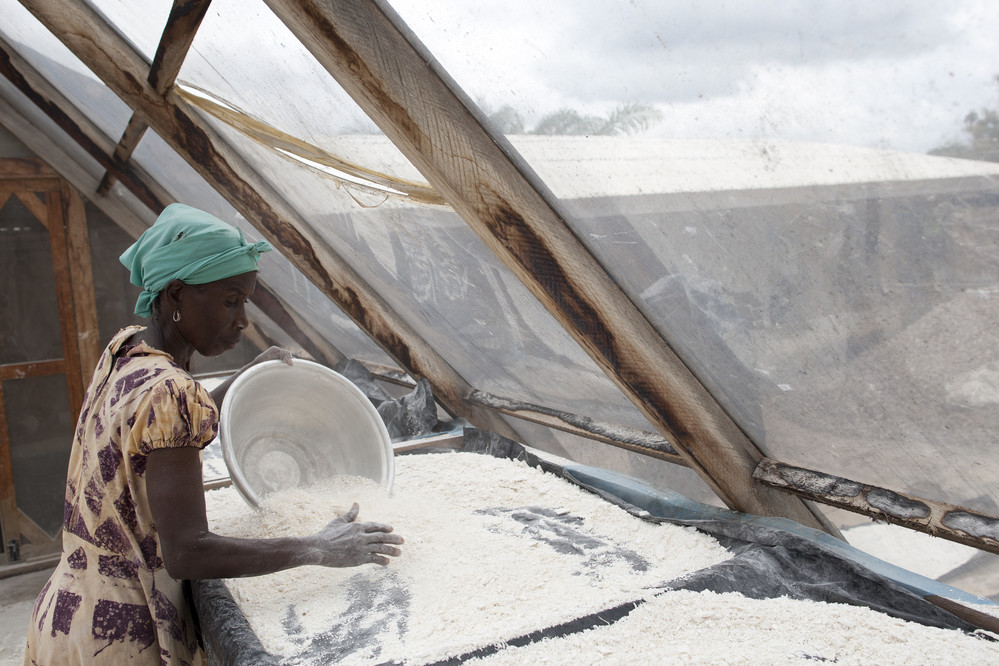Renewable energy
Renewable energy
The challenge
More than 2.5 billion people rely on biomass, such as fuel wood, charcoal, agricultural waste and animal dung to meet their energy needs for cooking. In many countries, these resources account for over 90 per cent of household energy consumption.
The reliance on traditional biomass poses serious health effects for people living in rural areas such as chronic respiratory diseases and eye infections. Rural women also spend significant amounts of time gathering firewood which contributes to physical fatigue.

The opportunity
The potential of renewable energy technologies (RETs) is greatest at the household level. The use of RETs for agricultural production means that farmers can undertake more value-added activities (grinding, milling, drying, storage) and are able to access to water through the use of solar pumps for irrigation and clean drinking water.
Productive uses of energy can contribute to providing heat and power for food preservation (drying, chilling and freezing) thus preventing loss of a significant fraction of the harvest between gathering, transporting and selling at markets. The food production chain necessitates application of RETs for better processing of agricultural products which can translate into stronger domestic enterprises. Photovoltaic (PV) driven machinery (grinder, mills, mechanical /electrical water pumps) can also run processing units for crops, fruits and spices, refrigeration, ice making, cold storage and drying.
Our work
IFAD integrates renewable energy technologies into smallholder agriculture for improved agricultural production, processing and post-harvest handling.
Although decentralized renewable energy expansion in developing countries cannot be a universal solution, by linking it to rural economic activities it can contribute to greater productivity.
Through the Adaptation for Smallholder Agriculture Programme (ASAP), IFAD has promoted improved cook stoves, biogas digesters and solar powered pumping systems in Bolivia, Mali, Nigeria and Kenya. Also, introduction of energy-efficient processing and storage technologies (such as solar heating, cooling, drying, milling, lighting) in Kyrgyzstan, India, Rwanda and Mozambique.
Related publications
Related publications
Renewable Energy Technology for Smallholder Farmers
Collaboration with Local Companies for Adaptive Agriculture in Cambodia.